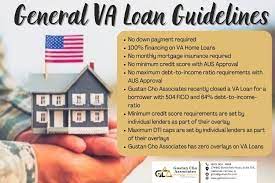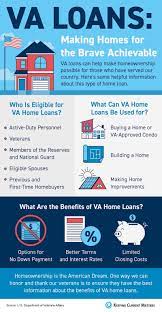Title: Exploring VA Loan Options for Veterans with Other Than Honorable Discharges
Introduction:
For veterans who have received an Other Than Honorable (OTH) discharge, accessing certain benefits can become challenging. One such benefit is the VA loan program, which provides eligible veterans with favorable terms and conditions for home loans. However, it’s important to understand that an OTH discharge may restrict access to some VA benefits. In this article, we will delve into the topic of VA loans for veterans with Other Than Honorable discharges and shed light on potential options available to them.
Understanding the OTH Discharge:
An Other Than Honorable discharge is a characterization of service that falls below the standards expected of military members. It can be given for various reasons, including misconduct or disciplinary issues. While an OTH discharge does not automatically disqualify a veteran from all VA benefits, it may limit their eligibility for certain programs.
VA Loan Eligibility:
Typically, to be eligible for a VA loan, veterans need an honorable discharge after serving a minimum period of active duty service. However, there are instances where veterans with OTH discharges may still qualify for a VA loan under specific circumstances.
Upgrading Discharge Status:
One potential avenue for veterans with OTH discharges is to apply for a discharge upgrade through the Department of Defense (DoD) or their respective branch’s Board for Correction of Military Records (BCMR). If successful in upgrading their discharge status to honorable or general under honorable conditions, they may regain eligibility for VA benefits, including the VA loan program.
Demonstrating Rehabilitation:
Another approach is to demonstrate rehabilitation by showcasing significant positive changes since receiving the OTH discharge. Veterans can compile evidence such as employment history, education achievements, community involvement, and testimonials from reputable sources that attest to their character and improved conduct. Submitting this evidence along with an application requesting reconsideration can potentially lead to reinstatement of VA benefits.
Alternative Loan Options:
While VA loans offer numerous advantages, such as no down payment requirement and competitive interest rates, veterans with OTH discharges may need to explore alternative loan options. Conventional loans, FHA loans, or USDA loans are alternatives that could be considered. These loan programs have different eligibility requirements and may be more accessible for veterans with OTH discharges.
Seeking Professional Assistance:
Navigating the complexities of VA loan eligibility can be challenging, especially for veterans with OTH discharges. It is highly recommended to consult with a knowledgeable VA loan specialist or a Veterans Service Organization (VSO). These professionals can provide guidance on available options, assist in discharge upgrade applications, and help explore alternative loan programs.
Conclusion:
While an Other Than Honorable discharge may present obstacles when it comes to accessing certain VA benefits, including the VA loan program, it’s important for veterans to know that there are potential avenues to explore. Seeking a discharge upgrade or demonstrating rehabilitation can improve eligibility for VA benefits. Additionally, alternative loan options like conventional loans or FHA loans can provide viable alternatives. Remember, seeking professional assistance is crucial in navigating these processes and maximizing the available resources for veterans who have served our country honorably.
Frequently Asked Questions: Other Than Honorable Discharge and VA Loans
- What benefits do you lose with an other than honorable discharge?
- Are you considered a veteran with a OTH discharge?
- Is other than honorable discharge considered dishonorable?
- Can I qualify for a VA loan with an other than honorable discharge?
What benefits do you lose with an other than honorable discharge?
Receiving an Other Than Honorable (OTH) discharge can have significant implications on a veteran’s eligibility for certain benefits and services. While it does not automatically disqualify them from all benefits, it may limit access to specific programs. Here are some benefits that veterans may lose or have limited access to with an OTH discharge:
- VA Education Benefits: Typically, veterans with OTH discharges are ineligible for most VA education programs, including the GI Bill and vocational rehabilitation assistance. However, in some cases, they may still be eligible for limited educational assistance under specific circumstances.
- VA Healthcare: Generally, veterans with OTH discharges are not eligible for VA healthcare benefits unless they meet certain criteria. Those who have been injured or experienced a service-related disability may still be able to receive treatment for those specific conditions.
- VA Home Loans: Veterans with OTH discharges usually do not qualify for VA home loans, which offer favorable terms and conditions such as no down payment requirements and competitive interest rates. However, there may be exceptions if the veteran’s discharge status is upgraded or if they can demonstrate significant rehabilitation.
- Disability Compensation: In most cases, veterans with OTH discharges are not eligible for disability compensation provided by the Department of Veterans Affairs (VA). Disability compensation is typically reserved for veterans with honorable or general under honorable conditions discharges.
- Veterans Preference in Federal Hiring: With an OTH discharge, veterans are generally not entitled to receive preference points when applying for federal civil service jobs or other employment opportunities that provide preferential treatment to veterans.
- Access to Military Installations: Veterans with OTH discharges may face limitations when accessing military installations and facilities such as commissaries, exchanges, recreational areas, and base services.
It’s important to note that each case is unique, and there may be exceptions or opportunities to regain eligibility for certain benefits through a discharge upgrade or by demonstrating rehabilitation. Veterans with OTH discharges should consult with a Veterans Service Organization (VSO) or legal professional to explore their specific circumstances and potential options for reinstating benefits.
Are you considered a veteran with a OTH discharge?
No, a veteran with an Other Than Honorable (OTH) discharge is not considered a veteran.
Is other than honorable discharge considered dishonorable?
An Other Than Honorable (OTH) discharge is not considered the same as a dishonorable discharge. While both types of discharges are less favorable than an honorable discharge, they have distinct differences.
A dishonorable discharge is the most severe form of punitive discharge and is typically given as a result of serious offenses such as desertion, espionage, or murder. It carries significant legal and social implications, including the loss of many military benefits and difficulties in finding employment.
On the other hand, an Other Than Honorable discharge is a characterization of service that falls below the standards expected of military members but does not meet the criteria for a dishonorable discharge. It can be given for reasons such as misconduct, drug abuse, or repeated disciplinary issues. While an OTH discharge does have negative consequences, it is generally considered less severe than a dishonorable discharge.
It’s important to note that an OTH discharge may still limit access to certain VA benefits and can impact future employment opportunities. However, it does not carry the same level of stigma or legal ramifications as a dishonorable discharge.
Can I qualify for a VA loan with an other than honorable discharge?
Qualifying for a VA loan with an Other Than Honorable (OTH) discharge can be challenging, as the typical eligibility requirement for a VA loan is an honorable discharge. However, it’s important to note that each case is unique, and there may be exceptions or alternative options available.
In some cases, veterans with OTH discharges may still be eligible for a VA loan if they are able to upgrade their discharge status. Veterans can apply for a discharge upgrade through the Department of Defense (DoD) or their respective branch’s Board for Correction of Military Records (BCMR). If successful in upgrading their discharge to honorable or general under honorable conditions, they may regain eligibility for VA benefits, including the VA loan program.
Another factor that could potentially influence eligibility is demonstrating rehabilitation. Veterans can gather evidence that showcases significant positive changes since receiving the OTH discharge. This evidence might include employment history, education achievements, community involvement, and testimonials from reputable sources attesting to their character and improved conduct. Submitting this evidence along with an application requesting reconsideration could potentially lead to reinstatement of VA benefits.
It’s important to consult with a knowledgeable VA loan specialist or a Veterans Service Organization (VSO) who can provide guidance tailored to your specific situation. They can help assess your eligibility and explore any potential options available to you.
Remember that while qualifying for a VA loan with an OTH discharge may be challenging, there are avenues worth exploring. Seeking professional assistance will greatly assist you in navigating the process and maximizing the available resources for veterans who have served our country honorably.




